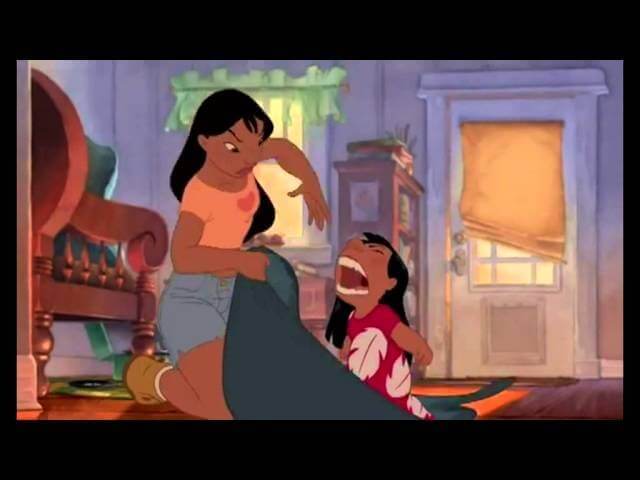Forget Frozen, Lilo & Stitch is Disney’s best exploration of sisterhood

Disney princesses have become something of a battleground recently. In a media landscape starved for mainstream female representation, they’re a touchstone for what and how we teach girls: Do the princesses inspire or limit? Are they feminist? Should their stories involve love? Should their stories involve gay love? Those questions and more swirl around the princess line. But what gets lost in the rush to both praise and critique Disney’s iconic collection of royal woman is that they aren’t the only women Walt Disney Animation Studios has created over the past 79 years. Freed from the iconography of the “Disney princess,” these other female heroines offer a far more diverse picture of what it means to be a woman.
Take, for instance, 2002’s Lilo & Stitch, a frequently overlooked Disney gem that feels tailor-made to appeal to today’s progressive audiences: It’s an action-based, female-centric movie in which romance is only a tiny subplot for one character. It centers on two women of color with curvy bodies that defy the usual slender princess look. Eleven years before Frozen made headlines for its celebration of sisterhood, Lilo & Stitch created the most complex sister relationship in the Disney canon.
Dressed up like a sci-fi action comedy about a crazed escaped alien experiment named Stitch, Lilo & Stitch is actually a celebration of atypical families. The film centers on Lilo Pelekai (voiced by Daveigh Chase), a girl being raised by her 19-year-old sister, Nani (Tia Carrere), after their parents died in a car accident. Lilo winds up befriending Stitch, but beneath the film’s wacky alien shenanigans and lovely Hawaiian setting runs an exploration of grief and healing that’s allowed to play out with maturity and nuance, because it’s not the sole focus of the film.
What’s especially interesting is that Lilo & Stitch approaches its diversity without the self-congratulatory tone of Frozen or the preachier message of Zootopia. In other words, the movie never feels like it’s setting out to be progressive. Writer-directors Chris Sanders and Dean DeBlois are simply telling a story that happens to take place in Hawaii and happens to center on two sisters who happen to be women of color. (Which is no small feat considering how many movies set in Hawaii star white people.) Nani and Lilo are also allowed to be messy, angry, and flawed in ways Disney princesses seldom are. If Inside Out explicitly taught audiences that it’s okay for girls to have unpleasant emotions, Lilo & Stitch simply shows that same message in action.
Lilo, in particular, is delightfully weird. When we first meet her she’s running late for a hula class because she stopped to deliver her weekly peanut butter sandwich to a fish named Pudge. She has to carry out the ritual, she explains exasperatedly, because she’s convinced Pudge can control the weather. Her favorite hobby is taking pictures of tacky tourists to lovingly hang on her wall, she’s deeply obsessed with Elvis, and she has a soft spot for all things grotesque. As Lilo proudly shows off her gross-looking homemade doll, Scrump, she explains, “I made her, but her head is too big. So I pretend a bug laid eggs in her ears, and she’s upset because she only has a few more days to…” Before she can even finish the sentence, her would-be playmates have vanished.
While those lovable quirks call to mind Frozen’s Anna, Lilo is also flawed in much more unlikable ways, too. When a classmate calls her crazy, Lilo immediately tackles and starts punching her. Later we see Lilo attempting to put a voodoo curse on her rude classmates. “My friends need to be punished,” she deadpans. While we come to understand that Lilo is acting out because she’s lonely and insecure, it’s still rare to find a female character who’s allowed to be so aggressively unpleasant at times.
Nani, meanwhile, could be described as the anti-Disney princess. Her house is a disaster, she can’t cook, and she’s regularly torn between staying home to look after Lilo and working to support them both. She’s got none of the effortless domestic finesse that defined so many of Disney’s early female characters; instead she loves surfing and, like Lilo, struggles to control her temper. And while Nani has a nominal love interest in a goofy surfer dude named David, it’s her love and devotion for Lilo that drives her narrative.
 Keep scrolling for more great stories.
Keep scrolling for more great stories.
